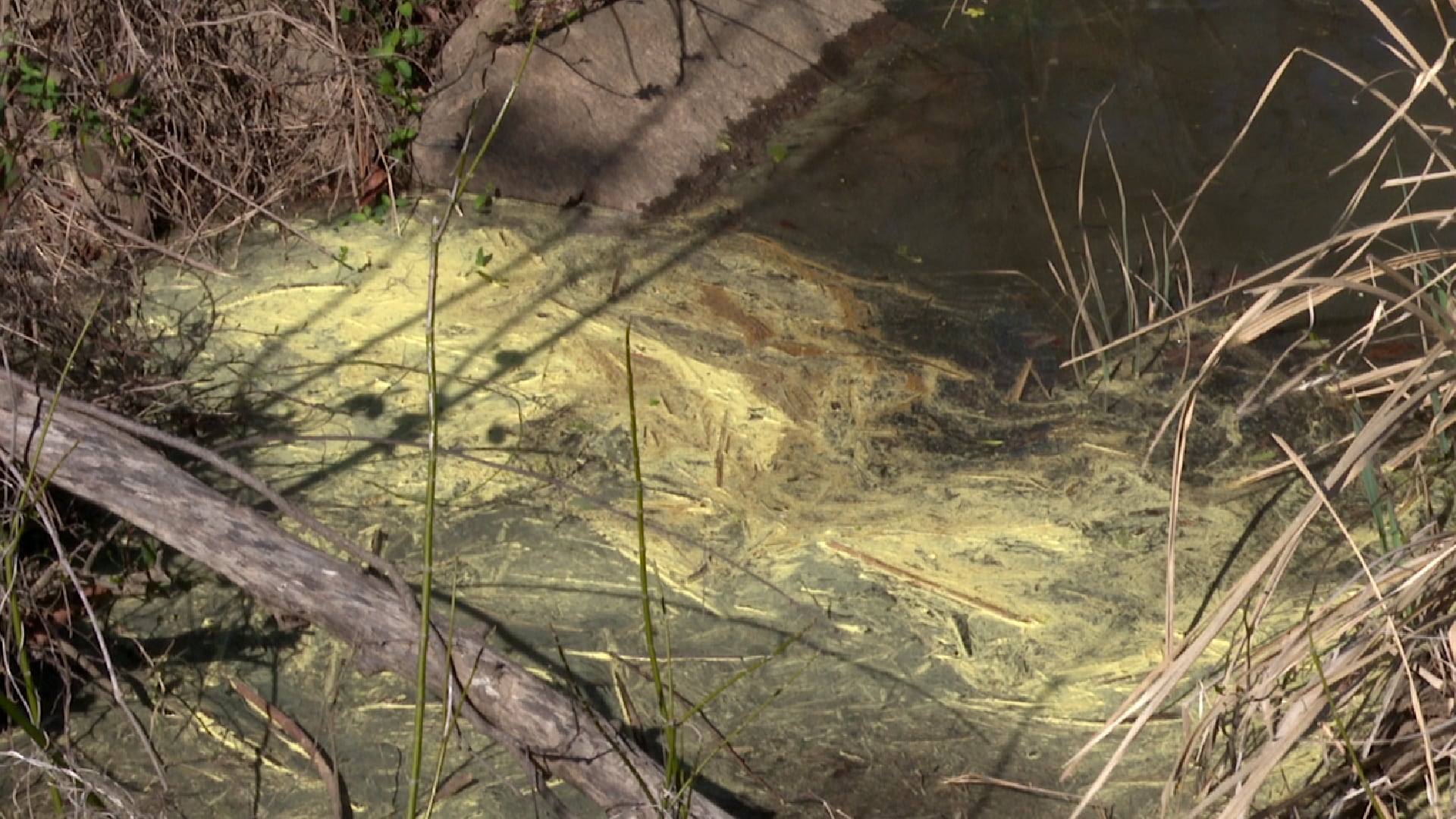Ga. DNR warns people to clean bird feeders to prevent disease
ATLANTA, Ga. (Atlanta News First) - The Georgia Department of Natural Resources is sending out an urgent warning to homeowners. They’re hoping people will clean their bird feeders.
During the spring and summer, sick birds are reported across the state. The best way to keep diseases from spreading is to clean bird feeders.
DNR wildlife biologist Todd Schneider said feeders are a common denominator during an outbreak of sicknesses like conjunctivitis, avian pox, and respiratory illnesses.
“When avian influenza moves around in the populations of birds, it generally does not affect songbirds and feeder birds. It’s ducks, geese, and sometimes raptors. There’s always a possibility, but a very low chance,” said Schneider.
3 tornadoes confirmed in CSRA during Sunday’s severe weather
At least three tornadoes have been confirmed in the CSRA from severe storms Sunday morning. Burke County saw two EF-0 tornadoes and Barnwell County saw one EF-0 tornado.

Schneider recommends:
- Always wear protective gloves and a mask while cleaning feeders, feeding areas, and bird baths. Also, wash carefully afterward.
- Clean feeders weekly using a 10-percent bleach solution – one part bleach to nine parts water – and then rinse them thoroughly. After washing, let the feeders dry completely.
- Rake up bird seed, hulls, and fecal matter beneath feeders two or more times a week. The matter can be buried or put in a plastic bag and disposed of with household waste. Wearing a mask will help avoid inhaling fungal spores stirred up by raking.
- If you have multiple feeders, space them out to help limit gatherings of birds. With highly pathogenic avian influenza (commonly called bird flu) present in wild birds, avoid placing bird baths and feeders in proximity to domestic poultry. (For more on avian influenza, see https://georgiawildlife.com/sick-injured-or-orphaned-wildlife/avian-influenza.)
- Move feeders regularly. A move even 20 feet away lowers the risk of disease transmission.
- Empty and clean bird baths every two days when bird visitation is heavy. This also discourages breeding mosquitos from using the bath water.
- Do not handle wild birds that are sick or found dead. If only a few dead birds, the carcasses can be disposed of by burying them a foot or more deep. To report a large number of dead birds – such as five or more at one feeder over a day or two – please see below.
Tips and tricks to soothe seasonal allergies across the CSRA
Pollen is on the rise in the CSRA, and you may have seen it. Tree pollen counts are expected to be high this week, and grass pollen is rising as the spring solstice is right around the corner.

Birds are at risk from a variety of diseases that can flourish when birds flock to neglected feeders. DNR wildlife biologist Todd Schneider said the public can help by cleaning their feeders. “A hygienic bird feeder can reduce the risk tremendously.”
Conditions in and around feeders help spur sicknesses varying from conjunctivitis to avian pox. Bacterial diseases are transmitted orally and through the accumulation of fecal matter beneath feeders.
Birds infected with salmonellosis, the disease caused by the bacteria salmonella, often act lethargic and are easily approached, although other infected birds may show no symptoms.
Birds with conjunctivitis have crusty-looking eyes, may lose their sight and often remain perched on feeders even when approached.
Fungal infections such as aspergillosis, which can cause respiratory distress in birds, are often the result of a buildup of wet and moldy seed hulls beneath feeders.
Avian pox causes wart-like lesions on a bird’s face, legs or feet. More severe cases can cause lesions in the throat, compromising the bird’s ability to breathe, eat and swallow, and sometimes leading to secondary infections. Avian pox can be transmitted For more on feeder bird-related diseases, visit https://feederwatch.org/learn/sick-birds-and-bird-diseases.
Carolina Forest wildfire remains 70% containment nearly two weeks later
Firefighters will continue to work to contain the Carolina Forest wildfire on Saturday, nearly two weeks after it was first sparked.
About Bird Flu
Cases of highly pathogenic avian influenza in poultry and other domestic birds as well as in some wild birds and other animals throughout the U.S. and Canada have raised concern about possible impacts on songbirds.
Research suggests that avian flu is unlikely to become widespread in songbirds except for scavenging species such as crows and possibly only in areas where the risk of transmission is higher, such as near infected poultry facilities or gatherings of infected waterfowl such as ducks and geese.
REPORTING DEAD BIRDS
While a single dead bird is seldom cause for alarm, many dead birds in one place can signal a problem.
- Report multiple dead vultures, crows, waterfowl (ducks and geese), waterbirds (such as cormorants, pelicans, herons and egrets) and shorebirds (ex., gulls, terns, sandpipers, plovers) seen at a single site to https://georgiawildlife.com/report-dead-birds. Also report individual dead or sick birds of prey, such as eagles, hawks, falcons, owls and osprey using that online form. Please observe these incidents only from a distance to avoid transmitting disease. Keep pets such as dogs and cats away from bird carcasses, as well.
- Report multiple dead songbirds or other species not specified above by ing 1-800-366-2661, a local DNR office (https://georgiawildlife.com/about/) or [email protected]. DNR can provide guidance as needed for these situations.
Copyright 2025 WRDW/WAGT. All rights reserved.












